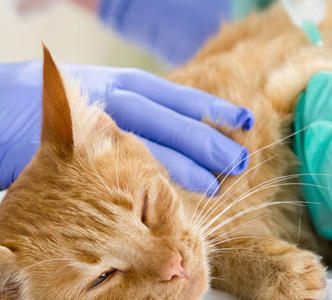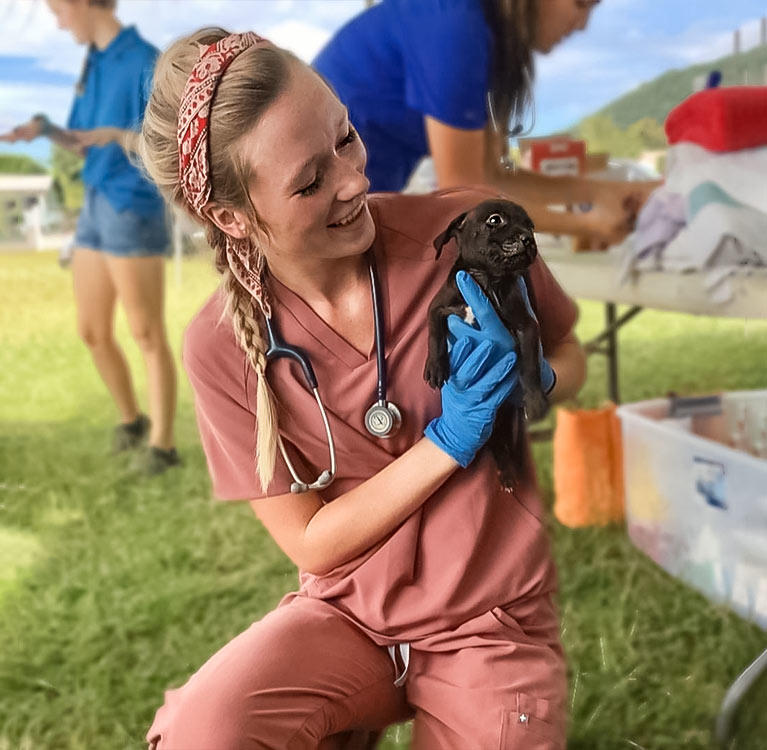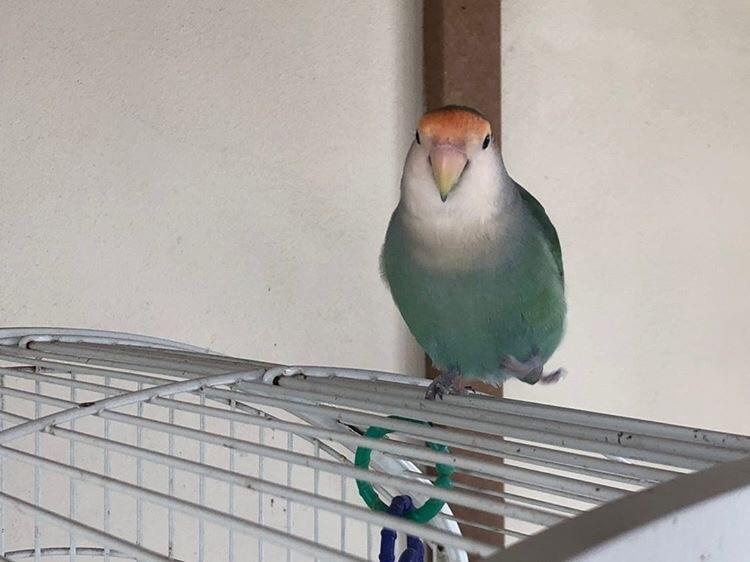Similar to humans, animals may need a medical professional equipped to handle unexpected emergencies. Emergency veterinarians provide life-saving care in urgent situations. Whether it is an accident or a sudden illness, emergency veterinarians treat patients in critical situations.
Emergency veterinarians can handle everything from major surgeries to treating animals suffering from bowel issues. These specialists play a vital role in animal care by helping animals when they need it most.
What is an Emergency Veterinarian?
Emergency veterinarians are animal medicine doctors who specialize in treating life-threatening injuries and illnesses. Although they work primarily in hospitals and emergency clinics, they often consult with internal medicine specialists and surgeons. Emergency vets may choose to narrow their focus to small animals, large animals, equines, and more.
Emergency vets take referrals from general practice veterinarians to provide emergency care for patients in distress. These vets can treat animals suffering from a wide range of ailments such as:
- Gastrointestinal issues
- Trauma (such as falling from high places, being struck by a car or external object, etc.)
- Seizures
- Pain and discomfort
- Post-operative complications
- Disorientation
- Trouble breathing
- Paralysis
- Blood in their urine or stool
- Constipation
Emergency vets can diagnose patients, provide a wide range of surgical services, and monitor patients during their stay.
Working as an Emergency Veterinarian
Working as an emergency vet can be an intense yet rewarding experience. Emergency vets treat patients suffering from chronic to life-threatening conditions. They may also be required to work irregular shifts since emergencies can happen at any time throughout the day.
Working as an emergency vet can take an emotional toll. However, treating and nursing patients back to health can provide a sense of personal and professional fulfillment. It takes effective team coordination and cohesion to examine the patient, stabilize the patient, and secure an accurate history from the client, often simultaneously. The vet must remain calm and to accurately determine the course of action, correctly administer medication, if necessary, and track patient milestones, all while watching for any deterioration. The ability to pivot and be flexible is critical.
Skills Used by Emergency Veterinarians
Emergency veterinarians have extensive medical, surgical, and procedural knowledge. They are well-versed in pathology, pharmacology, and animal anatomy. Emergency vets are trained in medical imaging techniques and can interpret ultrasounds and X-rays.
Emergency veterinarians must be able to multitask to provide timely and accurate care to multiple patients. A patient’s condition can change abruptly, so an emergency veterinarian must be able to adapt to changing situations quickly. They should also be critical yet agile thinkers who can quickly assess, diagnose, and administer appropriate treatment to their patients.
Although emergency vets treat animals, they often interact with pet owners and other veterinary professionals. They need strong communication and interpersonal skills to effectively explain conditions and treatments with pet owners. Emergency vets should also be organized and have strong time management skills.
Emergency vet clinics can be fast-paced, and the stakes are often high. Emergency vets should be able to remain calm under pressure and empathetic toward patients and their families.
The emergency setting is challenging for everyone: the patient, the client, the support staff, and the vet. The environment is often distressing, and clients are often facing unexpected circumstances with uncertain outcomes, and with that comes tremendous worry. It’s very important that the vet can remain calm under the pressure.
How to Become an Emergency Veterinarian
Before interested parties can become an emergency veterinarian, they should:
- Earn a bachelor’s degree
- Complete a Doctor of Veterinary Medicine (DVM) program
- Pass the North American Veterinary Licensing Examination® (NAVLE®) and the American Veterinary Medical Associate (AVMA®) board exam to earn licensure
After, veterinarians must complete an emergency and critical care residency program. Veterinarians who complete an American College of Veterinary Emergency Critical Care (ACVECC) approved residency program become a Diplomate. Diplomates of the ACVECC (DACVECC) are board-certified veterinary emergency and critical care specialists.
Diplomates must complete veterinary continuing education (CE) credits annually. This ensures veterinarians remain updated on recent advances, best practices, and innovations.
Why Become an Emergency Veterinarian
Although this pathway can be taxing, it can be incredibly rewarding. It allows those with a passion for animal welfare to make a difference in the lives of animals and their owners. Becoming an emergency veterinarian presents new challenges daily and constant opportunities to learn new skills.
Emergency vets can provide critical care in urgent situations and see the results of their efforts. They can guide pets and owners through challenging times as well as form bonds with their clients. This can instill a sense of pride as well as personal and professional fulfillment.
Ready for a Career as an Emergency Veterinarian?
Those interested in pursuing a career as an emergency veterinarian will need to earn a Doctor of Veterinarian Medicine. Once complete, graduates can choose an emergency and critical care residency program approved by the ACVECC. This pathway puts veterinarians at the forefront of emergency animal care.
Ready to begin pursuing a career as an emergency veterinarian? Take the first step and reach out to Ross Vet today! Submit this form for more information or contact our admissions team at 1-(732)-509-3042 to learn more.








